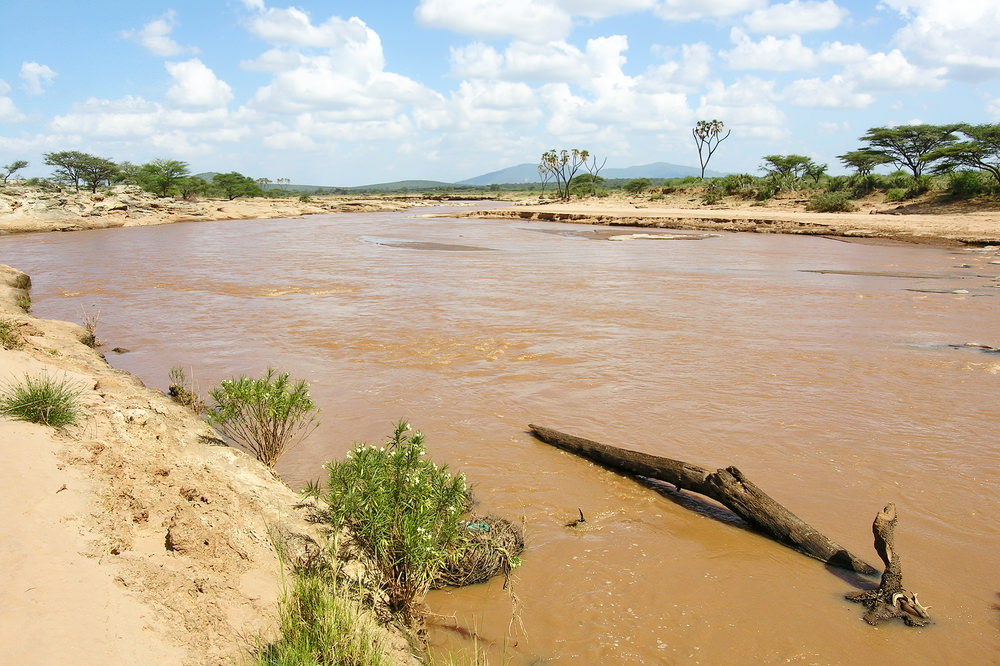
Dogecoin Foundation to Raise $50k for Kenya's Water Crisis
UPDATE (17th March, 12:35 GMT): A $10,000 tweet, which many are calling 'the most valuable in history', has sent the Doge4Water fundraising campaign over its Ð40,000,000 goal using Twitter's dogecoin tip bot.
@tipdoge tip @Doge4water 14000000 may we all drink water. let the wealthy fill your cup. #savethemhood— Hood (@savethemhood) March 16, 2014
________________________________________________________________
The Dogecoin Foundation, the nonprofit entity created by dogecoin's founders, has announced that its next fundraiser aims to collect 40m dogecoin ($50,000) as part of a month-long effort to fund the creation of two water wells.
Held in support of World Water Day on 22nd March, the Dogecoin Foundation's latest project finds it teaming up with New York-based nonprofit charity: water to support a remote region in drought-stricken eastern Kenya.
As of press time, Doge4Water had raised 16.3m dogecoin, but according to fundraiser organiser Eric Nakagawa, the numbers shouldn't be the focal point of discussion. For him, the real mission is to raise as much money for the effort as possible, whether that means falling short, or smashing the goal.
Explained Nakagawa:
Though clean drinking water may at first seem like an odd goal given the foundation's more eccentric fundraising pursuits, Nakagawa indicated the dogecoin community has strong ties to water themes.
The Dogecoin Foundation has previously focused its efforts on supporting athletes intending to perform at the 2014 Sochi Olympics, most notably helping Jamaica's bobsleigh team attend the games with $30,000 in donations.
Partnering with charity:water
Nakagawa was quick to put the foundation's idea into action, and as charity: water's digital director Paull Young told CoinDesk, was just as blunt when it came to looking for in a partner.
Though Nakagawa also reached out to UNICEF with his proposal, he said the spark between charity: water and the Dogecoin Foundation was immediate.
Following the exchange, Nakagawa decided against his original idea: that both organisations would take part in the mission. Instead, once the dogecoin is raised, the Dogecoin Foundation will convert the dogecoin into USD and send it to charity: water as a cheque.
Choosing the recipients
Both Nakagawa and Young indicated that Kenya was an obvious choice given the extreme need in the area.
A video created by charity: water in 2013 documents the dire situation of one particular area, where the locals face wild animal attacks just to obtain polluted drinking water.
iv align="center">KENYA: Live Auction Video from charity: water on Vimeo.
According to American University's Global Majority E-Journal (pdf), Kenya has faced severe droughts as a result of climate change – a development that has been compounded by poor investment in water resources and a lack of access to clean water.
With two weeks remaining, Young is already thinking about accepting digital currencies for more of these types of big-picture issues.
The joke that keeps on giving
Nakagawa, a digital currency entrepreneur who had a past startup acquired by Ripple (and co-founded I Can Has Cheezburger), indicated that he sees promise in the "joke currency" due to its active user base that he believes lacks the hubris of other communities:
The San Francisco resident is hoping dogecoin becomes more strongly associated with nonprofit work in the long-term, and for now, is dedicated to furthering this goal. He added that the Dogecoin Foundation has already embraced the idea.
"With dogecoin it's like 'Hey guys, let's make this part of our coin, let's try to do that all the time, because honestly the money is intangible it's as fictitious as fiat money," Nakagawa said. "Turning that belief into something that's changing the world, it's part of the culture from the beginning."
He suggested such outreach initiatives could happen monthly or quarterly, and that at the very least, this will be far from the last project led by the Dogecoin Foundation.
Ewaso Ngiro River, Kenya, image via Shutterstock
DISCLOSURE
The leader in news and information on cryptocurrency, digital assets and the future of money, CoinDesk is a media outlet that strives for the highest journalistic standards and abides by a strict set of editorial policies. CoinDesk is an independent operating subsidiary of Digital Currency Group, which invests in cryptocurrencies and blockchain startups. As part of their compensation, certain CoinDesk employees, including editorial employees, may receive exposure to DCG equity in the form of stock appreciation rights, which vest over a multi-year period. CoinDesk journalists are not allowed to purchase stock outright in DCG.


